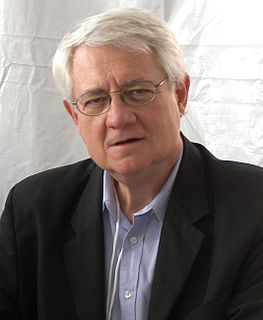A Quote by Russell Smith
It's great that I can look up a fact instantly on my cellphone, but I miss the days in my room with a dog-eared, text-heavy paperback, immersed in the statistics of crime and punishment and lunacy, completely alone with the narrative of human depravity.
Related Quotes
It's kind of like sentencing. A lot of people say that we have a heavy sentence for this crime and a light sentence for another crime, and what we ought to do is reduce the heavy sentence so it's more in line with the other. Wrong. In most cases we ought to increase the light sentence and make it compatible with the heavy sentence, and be serious about punishment because we are becoming too tolerant as a society, folks, especially of crime, in too many parts of the country.
A dog will make eye contact. A cat will, too, but a cat's eyes don't even look entirely warm-blooded to me, whereas a dog's eyes look human except less guarded. A dog will look at you as if to say, "What do you want me to do for you? I'll do anything for you." Whether a dog can in fact, do anything for you if you don't have sheep (I never have) is another matter. The dog is willing.
I really like the interplay between thinking of text as ephemeral and thinking of it as a concrete, physical thing. With almost anything that I write, I'll stay completely immersed in the electronic text of it for a period of time and in another period, I'll stay immersed in it as a physical thing that can cut your skin. So with the apocalypses, I had them taped all over the wall and they had codes on them. Sometimes I would color code them in terms of thematic elements, sometimes in terms of voice, sometimes visual forms or images.
With Orff it is text, text, text - the music always subordinate. Not so with me. In 'Magnificat,' the text is important, but in some places I'm writing just music and not caring about text. Sometimes I'm using extremely complicated polyphony where the text is completely buried. So no, I am not another Orff, and I'm not primitive.
Learning is available at the library for free; under a tree with a dog-eared paperback; at a job with a boss who gives you responsibility and mentorship; while traveling; while leading a cause, movement, or charity; while writing a novel or composing a poem or crafting a song; while interning, apprenticing, or volunteering; while playing a sport or immersing yourself in a language; while starting a business; and now, while watching a TED talk or taking a Khan Academy class.
We've clearly entered a period in which the analog of text is no longer important or relevant. All text will be electronic. I accept that fact. My house has thousands of books in it, and I've started to look at them completely differently. They now seem to me to be like antiquarian objects. Their use value has become negligible to me because I'm perfectly happy to read on an e-reader.
Governments have tried to stop crime through punishment throughout the ages, but crime continued in the past punishment remains. Crime can only be stopped through a preventive approach in the schools. You teach the students Transcendental Meditation, and right away they'll begin using their full brain physiology sensible and they will not get sidetracked into wrong things.






































